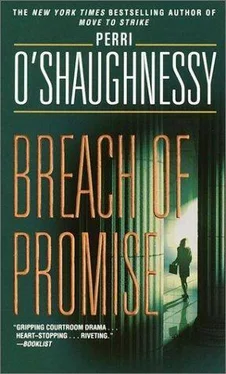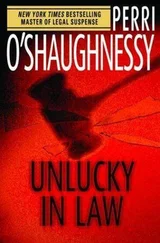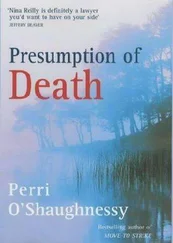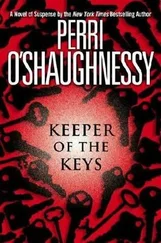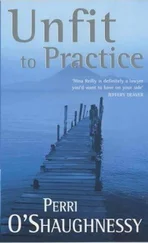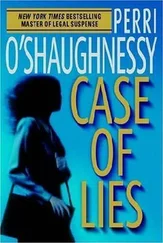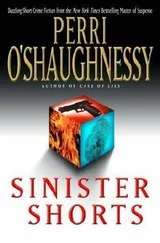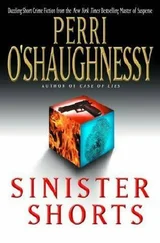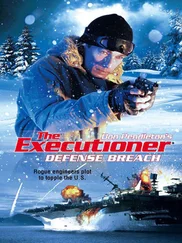“No,” Sonny said. “It had nothing to do with Markov. He was a power-tripper. He had to beat out the women, that was it. The mountain climber with the steel-shank shoes, the real-estate lady, and the cute little student. Courtney. He had to prove he was better than them, by winning the fight.”
“But why?”
Sonny looked pityingly at Paul, saying, “You know. Sure, let ’em win, let ’em cut your balls off. That’s what he said to me. Enough said?”
Paul shrugged and said, “Okay. Except you didn’t feel that way yourself.”
“That’s because I wasn’t concerned about those women doing anything I didn’t want them to do with my balls,” said Sonny.
“By the way, did you see the lunch as it was brought in that day?”
“We all did. We were hungry. It smelled good.”
“Did anybody go out in the hall before the lunch came in?”
“We had a break and everybody ran around, smoking, drinking, snortin’.” He guffawed. “What the hell do you care about our downtime?”
“Did any of the women go out in the hall before the lunch came in?” Paul asked insistently.
“I was busy, okay? Who knows and who the hell cares?”
Courtney lived with her mother in a big ranch-style family home in the Tahoe Keys. When she answered the door, Paul was surprised to see Ignacio Ybarra, another ex-juror, with her. He was holding her hand.
They talked for several minutes, but as Paul suspected, neither one shed any light on Cliff’s death.
“Can you think of anyone else who might have gone out into that hallway where the food was?” Paul said, right before leaving. “Anytime in the hour, say, before you broke for lunch?”
In unison, they said, “No.”
“Are you saying someone poisoned Cliff?” Courtney asked.
“Of course not. But, just for the mental exercise, if someone were going to poison him, who would it be?” Paul said.
“No one!” said Courtney.
“Diane,” said Ignacio.
Paul ate his lunch at a new Mexican restaurant that had just opened up at Round Hill Mall, then drove back into town wiping chile colorado from his lips. He wondered if he would know whether Diane Miklos had dropped something peanutty into the cartons the minute he saw her. Sometimes it worked out that way.
She lived in a chalet-style home on the hill going up toward Heavenly. Paul parked around the corner in a fine stand of ponderosa pine and reviewed his notes. Midforties, old for a climber. Genevieve had placed an article from a climbing magazine about Diane’s exploits into the file. Diane had come to the mountains late, spent a couple of years getting in shape and taking mountaineering courses at Jackson Hole and North Conway, both good places to go, and then climbed several Sierra peaks. She had acquitted herself well and headed for the Alps for a year, making a winter ascent of Mont Blanc, no mean feat, and apparently there hooked up with the climber, Gus Miklos, a man from Athens with a world-class reputation. They had married a few years back, and occasionally climbed together.
She had set her sights on the Seven Summits, a goal Paul could appreciate. The idea was to climb the tallest mountain on each continent, including, of course, Everest. Besides Mt. Elbrus, the European summit, she’d managed to bag the Carstensz Pyramid in Indonesia, Aconcagua in Argentina the previous year, and Kilimanjaro the year before that. Everest and the others, Mt. McKinley in Alaska, and Mt. Vinson in Antarctica were still in the future, if she lived that long.
Paul found all this very interesting. He hoped Diane Miklos hadn’t killed Wright. She must have real character to live out this particular dream.
She didn’t answer the door at first, so he rang again. She finally opened it and groaned when she saw him. “I forgot you were coming,” she said. “Do we have to do this?”
“I won’t keep you long. We really appreciate your time.”
“You may as well come on in, then. Don’t mind the mess.” She sat back down in the middle of the floor. The entire room was heaped with rucksacks, duffel bags, stoves, ropes, pitons and anchors and hooks, helmet, food packets, deep-loft parkas, maps, books, and boots. She picked up a piece of what looked like parachute cloth and went back to mending it. On the table lay a camcorder and boxes of film. “Well?” she said.
A small, well-built woman with narrow blue eyes and a firm mouth, she lifted her head to listen to him.
“Where are you headed?” Paul said.
“Everest.” All he could see of her was a bright haystack of hair and the busy, competent hands. “They had a cancellation. I got an unexpected opening. I’m leaving tomorrow.”
“Is your husband going?” Over on a buffet behind a rough oak dining room set, he saw a picture of a grinning, dark-haired man wrapped in red parka and ski glasses with nothing but blue behind him.
“He did Everest in ’94. So, no. I’m on my own, so to speak.”
“I’m impressed.” He was. He let it show in his voice.
“Wait till I make a successful summit for that.”
“I was in the Peace Corps in Nepal,” Paul said, “a long time ago. Trekked up to Base Camp, went up Kala Patar to see the big mountain. The jet stream was pluming off it and had blown all the snow off the summit. Any climbers must have been blown right off, although the sun blasted down so fiercely we were wearing T-shirts. Dark-blue sky, white mountains all around, and that squat black pyramid, up so much higher even from eighteen thousand feet.” He could picture it all. “You going to fly into Lukla?” he asked. “If so, I hope they’ve improved the airstrip since I was there.”
“Don’t try to scare me,” she said, but she caught Paul’s smile. She was thawing. “Usually the first thing people want to know is how much I am paying to have some hundred-twenty-pound Sherpa drag me up on a short rope, as if I haven’t been training and climbing for years, and as if my survival won’t be up to me at all.”
He could guess how much she was paying. He wanted to know where she got her money. “It is expensive.”
“Yes, well. I have a wealthy sponsor for this trip.”
“Anyone I might know?” Paul asked. Did Lindy pay money to Diane to find out what was going on in the jury room? Did she pay her to guarantee a positive verdict?
“Nope. I have a dear ex-climbing buddy with wobbly knees who managed somehow to scrounge the money for this. She has nothing to do with the Markovs, if that’s what you’re suggesting.” She was getting defensive again.
“Well, you know and I know you’ll have to be extraordinary to get up there. There’s been so much publicity lately about the tragedies on Everest, but I hear you waltzed up Vinson in extreme conditions last January.”
“Waltzed?” She slapped her knee, laughing. “I staggered up and tottered down. I have never been so cold. But it was beautiful. I want to go back and climb in the Trans-Antarctics sometime. Incredible mountains, the bases buried in the ice sheet, whole ranges nobody’s ever set foot on.”
“You’re braver than me,” Paul said. “Would you be the first woman to make it up all seven?”
“No. Junko Tabei first did it in 1991.”
“How did you get into climbing?”
“A friend introduced me,” she said briefly. Then, as if she couldn’t resist, she added, “I used to be a professor of political science.”
“I know that. From the jury questionnaire. I figured you must have a social conscience, and that’s why you decided to serve rather than find some excuse to get out of it.”
She got up with a swift, lithe movement, turned to some items in the corner, and began sorting through them, her back to him. “Put this down in your report, if you want. I’ll never do it again. I’ve never seen such a bunch of goons.”
Читать дальше
